Discover The Next Picture Show
The Next Picture Show

The Next Picture Show
Author: Genevieve Koski, Keith Phipps, Tasha Robinson & Scott Tobias
Subscribed: 5,594Played: 135,598Subscribe
Share
© Telegraph Road Productions, 2015-
Description
Looking at cinema's present via its past. From the former editorial team of The Dissolve, The Next Picture Show examines how classic films inspire and inform modern movies. Episodes take a deep dive into a classic film and its legacy, then compare and contrast that film with a modern successor. Hosted and produced by Genevieve Koski, Keith Phipps, Tasha Robinson, and Scott Tobias.
481 Episodes
Reverse
Emerald Fennell’s new Wuthering Heights is full of stylistic provocations — skin walls, bed eggs, and light BDSM among them — but whether they are in service of, or distractions from, a bigger idea about the source material is up for debate this week. The divided reactions to Fennell’s contemporized take on an oft-adapted classic are reminiscent of the love-it-or-hate it response that greeted Baz Luhrmann’s Romeo + Juliet back in 1996, which we bring back in for Connections to examine the core romantic notions driving these two tales of doomed (and frequently soaking wet) love and/or lust. And in Your Next Picture Show we continue the Wuthering Heights adaptation discussion with a couple of recommendations that illustrate some of the different tonal directions this material can take.
Please share your thoughts about Romeo + Juliet, Wuthering Heights, or anything else in the world of film, by sending an email or voice memo to comments@nextpictureshow.net, or leaving a short voicemail at (773) 234-9730.
Learn more about your ad choices. Visit megaphone.fm/adchoices
With its bold stylization, pop soundtrack, and provocative sensibility, Emerald Fennell’s new Wuthering Heights appeals to a contemporary audience so openly it can’t help but call to mind Baz Luhrmann’s 1996 adaptation of another literary classic about doomed lovers, William Shakespeare’s Romeo + Juliet. Fennell citing it as a reference point for her film prompted us to revisit what made Lurhmann’s approach so enticing and/or annoying at the time, and consider how its maximalist mix of reverence and irreverence toward the source material — not to mention an ascendant Leonardo DiCaprio in peak heartthrob mode — has turned it into a generation’s formative Romeo and Juliet.
Please share your thoughts about William Shakespeare’s Romeo + Juliet, Wuthering Heights, or anything else in the world of film, by sending an email or voice memo to comments@nextpictureshow.net, or leaving a short voicemail at (773) 234-9730.
Learn more about your ad choices. Visit megaphone.fm/adchoices
Sam Raimi's new survival thriller Send Help is more overtly comedic and cartoonishly violent than the other film in this week's pairing of dueling castaway duos, but those qualities are both rooted in complimentary ideas about class, gender, and power. They're also both rooted in a baseline cynicism toward humanity that informs a lot of Raimi's work, as well as our discussion of Send Help, for which we are once again joined by cultural critic and friend of the show Charles Bramesco. Then in Connections we bring 1974's Swept Away back into the discussion to see how its sexual fantasy aligns with Send Help's revenge fantasy, and how both are shaped by these films' desert (or is it deserted?) island setting.
Please share your thoughts about Swept Away, Send Help, or anything else in the world of film, by sending an email or voice memo to comments@nextpictureshow.net, or leaving a short voicemail at (773) 234-9730.
Next Pairing: Emerald Fennell's Wuthering Heights and Baz Luhrmann's Romeo + Juliet.
Learn more about your ad choices. Visit megaphone.fm/adchoices
What happens when two people on opposite sides of a power imbalance end up stranded together on a deserted island? Before that was the premise of Sam Raimi’s new comedic thriller Send Help, it was the setup for Lina Wertmüller’s 1974 romantic farce Swept Away, only with the genders reversed and the sexual and political provocation turned way up. So this week we’re joined by critic, friend of the show, and Wertmüller aficionado Charles Bramesco to sort through Swept Away’s overlapping layers of satire, metaphor, and titillation, in an attempt to pinpoint what the film is actually trying to say about gender and class relations.
Please share your thoughts about Swept Away, Send Help, or anything else in the world of film, by sending an email or voice memo to comments@nextpictureshow.net, or leaving a short voicemail at (773) 234-9730.
Learn more about your ad choices. Visit megaphone.fm/adchoices
Even without Al Pacino's name in its cast list, the new Dead Man's Wire would invite comparisons to Dog Day Afternoon in its dramatization of a real-life 1970s hostage situation turned public spectacle. Whether it benefits from comparisons to Sidney Lumet's 1975 crime classic is another question, one we take up in our discussion of Gus Van Sant's first new feature in eight years. After that, we bring Dog Day Afternoon back in for Connections, to consider how these two films about volatile, narcissistic men and their ostensibly populist schemes fit into the proud tradition of amateur-hour crime movies, and whether a modern film depicting Indianapolis half a century ago has any hope of evoking its setting the way Lumet captured contemporary 1970s New York.
Please share your thoughts about Dog Day Afternoon, Dead Man's Wire, or anything else in the world of film, by sending an email or voice memo to comments@nextpictureshow.net, or leaving a short voicemail at (773) 234-9730.
Next pairing: Sam Raimi's Send Help and Lina Wurtmuller's Swept Away.
Learn more about your ad choices. Visit megaphone.fm/adchoices
In adapting the true story about a '70s hostage crisis that played out on television and in the public eye, Gus Van Sant's new Dead Man's Wire is just asking to be compared to 1975's Dog Day Afternoon — and who are we to resist an invitation to talk about yet another Sidney Lumet classic? So this week we revisit a film we have all previously seen and admired, but still has the ability to surprise with its unconventional approach to a bank robbery gone wrong, from its persistent sense of humor to its shifting perspective on Al Pacino's criminal protagonist. Then in Feedback, we continue the conversation about our podcast's namesake film, and answer a recurring question about our archives.
Please share your thoughts about Dog Day Afternoon, Dead Man's Wire, or anything else in the world of film, by sending an email or voice memo to comments@nextpictureshow.net, or leaving a short voicemail at (773) 234-9730.
Learn more about your ad choices. Visit megaphone.fm/adchoices
We’re kicking off the new year with our old tradition of looking back on the film year that was, as Scott, Keith, and Tasha gather to talk through their top films of 2025. After touching on some of last year’s broader filmgoing trends and blitzing through the bottom half of their top 10 lists, they talk through their respective top fives, which include several Next Picture Show selections from the last year, as well as a few curveball picks that appear on no other lists.
Next Pairing: Gus Van Sant’s Dead Man’s Wire and Sidney Lumet’s Dog Day Afternoon
Learn more about your ad choices. Visit megaphone.fm/adchoices
Due to the confluence of holiday and flu seasons, our Best of 2025 episode is delayed a week, so in its place we're sharing a recent episode of The Lobby, our Patreon-exclusive series focusing on movies we don't cover on the main feed. If you'd like to become a Patreon supporter and get ad-free versions of the show, as well as more bonus content like this, you can head over to patreon.com/nextpictureshow to sign up.
Learn more about your ad choices. Visit megaphone.fm/adchoices
Whether he’s playing billiards or table tennis, a successful hustler requires no small amount of charisma, something Timothée Chalamet’s ping-pong pro undeniably has in Marty Supreme, though it’s of a decidedly different flavor than that of Paul Newman in The Hustler. Whether that charisma translates to a character we want to root for as he makes a mess of his own life, as well as those of the people (and one unfortunate dog) around him, is up for debate in our discussion of Josh Safdie’s new anxiety attack in movie form. Then we pit Marty’s game against Fast Eddie’s as we move into Connections to discuss the magic and morality of hustling, charismatic liars and the women who are drawn to them — even when they can see right through them — and whether these men chasing victory on their own terms, and at the cost of everything else, is inspirational or pitiful. Then in Your Next Picture Show, Scott sticks up for The Color of Money, Scorsese's Hustler sequel that can’t quite best its predecessor, but still has plenty of swagger all its own.
Please share your thoughts about The Hustler, Marty Supreme, or anything else in the world of film, by sending an email or voice memo to comments@nextpictureshow.net, or leaving a short voicemail at (773) 234-9730.
Learn more about your ad choices. Visit megaphone.fm/adchoices
The new Marty Supreme follows a table-tennis phenom with the talent necessary to beat the best players in the world, if only he can keep his self-destructive tendencies from getting in the way. Swap out “table tennis” for “pool” in that description and you more or less have Robert Rossen’s 1961 drama The Hustler, which we revisit this week not only to bask in the incomparable onscreen charisma of Paul Newman, but also to consider the film’s ideas about what makes a winner — and a loser — and its noir-adjacent portrait of the gambling underworld. Then, in place of Feedback this week, we’re reflecting on the late Rob Reiner’s legacy on screens both big and small, and within an industry he helped shape in countless ways.
Please share your thoughts about The Hustler, Marty Supreme, or anything else in the world of film, by sending an email or voice memo to comments@nextpictureshow.net, or leaving a short voicemail at (773) 234-9730.
Learn more about your ad choices. Visit megaphone.fm/adchoices
David Freyne’s new Eternity shoves a thematically rich afterlife scenario into a romcom-shaped container, resulting in an above-average example of the genre that nonetheless feels like it’s only scratching the surface of its narrative potential. That leaves us with a lot of logistical questions to mull in our discussion of the film — several of which Tasha addressed in her pair of conversations with Freyne over at Polygon — and also a lot of points of contrast when we bring Hirokazu Kore-eda’s After Life back in for Connections. After Life and Eternity look and feel very different as they navigate the ins and outs of their respective postmortem bureaucracies, but both are ultimately concerned with characters being forced to make a single choice that will define their afterlives, what that choice says about what truly matters, and what the things we most value say about us. Those ideas pop up again in Your Next Picture Show, where Tasha offers an enthusiastic recommendation for the 2020 Edson Oda film Nine Days as an unofficial companion piece to After Life.
Please share your thoughts about After Life, Eternity, or anything else in the world of film, by sending an email or voice memo to comments@nextpictureshow.net, or leaving a short voicemail at (773) 234-9730.
Next Pairing: Josh Safdie’s Marty Supreme and Robert Rossen's The Hustler
Learn more about your ad choices. Visit megaphone.fm/adchoices
The new fantasy romcom Eternity turns on a scenario familiar from any number of films that imagine life after death as a bureaucratic process, but its focus on characters forced to make big, symbolic choices for big, symbolic reasons is particularly reminiscent of After Life, Hirokazu Kore-eda’s 1998 movie in which the recently departed are given one week to select a memory to take with them into the great beyond. While the functional logistics of After Life’s post-life waystation are ultimately secondary to its heady ideas about memory and filmmaking, that doesn’t stop us from talking through the ways this specific setting informs those ideas, and the various questions that arise from it. Then in Feedback, we tackle a listener’s consternation with some of the choices Train Dreams makes in adapting its source material.
Please share your thoughts about After Life, Eternity, or anything else in the world of film, by sending an email or voice memo to comments@nextpictureshow.net, or leaving a short voicemail at (773) 234-9730.
Learn more about your ad choices. Visit megaphone.fm/adchoices
Clint Bentley’s Train Dreams uses gorgeous imagery of the natural world, combined with an omniscient narrator quoting from the Denis Johnson novella the film adapts, to speak for a taciturn protagonist who struggles to understand, much less articulate, his place in the world. That approach has earned it the Terrence Malick comparisons that informed this pairing, but Train Dreams uses its own distinct lens to contemplate the ineffable and ephemeral nature of human existence. So after talking through our responses to the film’s big-picture ideas and small, telling details, we place Train Dreams alongside Days of Heaven to discuss the two films’ contrasting approaches to their overlapping elements, from persistent voiceover and big beautiful vistas, to man’s presumed dominion over nature and the biblical infernos that suggest otherwise. Then for Your Next Picture Show, Keith offers a Days of Heaven-inspired recommendation for very different film featuring a similarly memorable performance from Linda Manz, 1980’s Out of the Blue
Please share your thoughts about Days of Heaven, Train Dreams, or anything else in the world of film, by sending an email or voice memo to comments@nextpictureshow.net, or leaving a short voicemail at (773) 234-9730.
Learn more about your ad choices. Visit megaphone.fm/adchoices
Clint Bentley’s new Train Dreams uses the vast canvas of the natural world to frame a relatively tiny story of a single human life, a juxtaposition of story and visuals that’s reminiscent of the work of Terrence Malick, in particular 1978’s Days of Heaven. Set, like Train Dreams, in the midst of America’s Industrial Revolution, Days of Heaven takes an elliptical approach to a fairly straightforward narrative that is pure Malick, leaving us with much to discuss in terms of whose story this is, and what the film’s sparse dialogue and unusual narration leaves unsaid. Then in Feedback, we share some quick reactions to a handful on new releases we won’t be covering on the show, and address a listener suggestion for an alternate One Battle After Another pairing.
Please share your thoughts about Days of Heaven, Train Dreams, or anything else in the world of film, by sending an email or voice memo to comments@nextpictureshow.net, or leaving a short voicemail at (773) 234-9730.
Learn more about your ad choices. Visit megaphone.fm/adchoices
Don’t be alarmed by the title of this week’s movie selection, this is not our final episode — in fact, it’s our 500th, a milestone none of us expected to hit when we started this podcast a decade ago. So in honor of all our past pairings, we’re devoting this one-off episode to a film we’ve never managed to find an excuse to cover on this show, despite naming ourselves after it: THE LAST PICTURE SHOW. You may think it counterintuitive, even perverse, to devote our anniversary celebration to a somber film about a dying town whose only movie theater shuts down — even one as great as Peter Bogdanovich’s 1971 coming-of-age drama — but as our discussion reveals, there are deeper connections between the film and this podcast than just a name. After that, we lighten the mood considerably with a very special game devoted to this podcast’s history and our collective inability to remember it, especially when points are on the line.
Please share your thoughts about THE LAST PICTURE SHOW, The Next Picture Show, or anything else in the world of film, by sending an email or voice memo to comments@nextpictureshow.net, or leaving a short voicemail at (773) 234-9730.
Intro: 00:00:00-00:07:48
The Last Picture Show Keynote: 00:07:48-00:13:04
The Last Picture Show Discussion: 00:13:04 - 00:44:02
The Next Picture Quiz Show: 00:44:02-01:22:07
Next episode announcement and goodbyes: 01:22:07-end
Learn more about your ad choices. Visit megaphone.fm/adchoices
From its nearly three-hour runtime to its deployment of some of the most deranged CGI you’ve ever seen committed to screen, Radu Jude’s DRACULA often feels like an extended act of trolling, but is it art? The answer to that question is inextricable from the film’s presentation of AI-derived art as grotesque, inhuman, and unsatisfying, and it makes DRACULA arguably more entertaining to discuss than it is to watch. So after attempting to pull some meaning out of what the critic in 8 1/2 might describe as DRACULA’s “series of gratuitous episodes,” we move into Connections for a study in contrasts between Fellini’s portrait of an artist struggling to make a personal work, and Jude’s evisceration of a charlatan trying to outsource artistry to a machine. Then in Your Next Picture Show, we discuss another film we considered as a DRACULA pairing that may not be quite as celebrated as 8 1/2, but we nonetheless recommend as another depiction of a filmmaker in creative crisis: Christopher Guest’s debut feature, THE BIG PICTURE.
Please share your thoughts about 8 1/2, DRACULA, or anything else in the world of film, by sending an email or voice memo to comments@nextpictureshow.net, or leaving a short voicemail at (773) 234-9730.
Next episode: A celebration of Peter Bogdanovich’s THE LAST PICTURE SHOW, and 500 episodes of a niche film podcast named after it.
Intro: 00:00:00-00:01:57
Dracula discussion: 00:01:57 - 00:27:20
Dracula/8 1/2 Connections: 00:27:20 - 00: 48:11
Your Next Picture Show and goodbyes: 00:48:11-end
Learn more about your ad choices. Visit megaphone.fm/adchoices
Radu Jude’s DRACULA is, technically speaking, yet another movie about one of the most depicted antagonists in all of cinema, but in actuality it’s about a different beast that has fascinated filmmakers for nearly as long: filmmaking. Within the grand tradition of “movies about moviemaking,” DRACULA’s surreal humor, combined with its focus on a struggling filmmaker fantasizing about the film he might make, gave us an excuse to revisit an all-time classic of the form, Federico Fellini’s 8 1/2. So this week we search for meaning within 8 1/2’s reveries of a blocked creative mind, interrogate the “semi” part of Fellini’s semi-autobiographical approach, and touch on some of the other films that exist in the shadow of this one. Then in Feedback, our recent pairing of RUNNING ON EMPTY and ONE BATTLE AFTER ANOTHER inspires a supplementary-listening suggestion for the former, and a head canon explanation for one of our questions about the latter.Please share your thoughts about 8 1/2, DRACULA, or anything else in the world of film, by sending an email or voice memo to comments@nextpictureshow.net, or leaving a short voicemail at (773) 234-9730.Intro: 00:00:00-00:05:128 1/2 Keynote: 00:05:12-00:11:398 1/2 Discussion: 00:11:39-48:26Feedback/outro: 00:48:26-end
Learn more about your ad choices. Visit megaphone.fm/adchoices
A HOUSE OF DYNAMITE is built on an undeniably hooky premise — a nuclear missile originating from an unknown source is heading right for us — but is that premise enough to support a successful movie? We’re joined once again by critic and author Jason Bailey to unpack that question, particularly as it applies to the film’s triptych structure and nervy ending gambit. That ending comes back into play when we reintroduce 1964’s FAIL SAFE for Connections, to see how Sidney Lumet’s Cold War thriller compares to Kathryn Bigelow’s modern-day nuclear scenario in their respective depictions of human connection — personal, professional, and adversarial —amid humanity-threatening catastrophe. Then we keep it in the nuclear family for Your Next Picture Show, with a recommendation for the 1983 TV movie THE DAY AFTER, as well as some of its pop-cultural fallout.
Please share your thoughts about FAIL SAFE, A HOUSE OF DYNAMITE, or anything else in the world of film, by sending an email or voice memo to comments@nextpictureshow.net, or leaving a short voicemail at (773) 234-9730.
Next Pairing: Radu Jude’s DRACULA and Federico Fellini’s 8 1/2
Intro: 00:00:00-00:02:33
A House of Dynamite discussion: 00:02:33 - 00:24:41
A House of Dynamite/Fail Safe Connections: 00:24:41-47:56
Your Next Picture Show and goodbyes: 00:47:56-end
Learn more about your ad choices. Visit megaphone.fm/adchoices
Kathryn Bigelow’s new A HOUSE OF DYNAMITE games out a scenario that filmmakers have been grappling with since the mid-20th century, in particular the year 1964, which saw the release of two very different classics of the nuclear-catastrophe genre: DR. STRANGELOVE, followed a few months later by the other half of this week’s pairing, FAIL SAFE. If the bleak realism of Sidney Lumet’s nuclear thriller made it a tougher sell to audiences back then, though, it also makes FAIL SAFE feel like a more fitting companion to Bigelow’s film than its satirical predecessor. We’re joined this week by critic and author Jason Bailey to discuss why FAIL SAFE still feels so immediately chilling decades removed from its Cold War context, and how Lumet makes a story that plays out mainly in a series of small rooms feel both grand in scope and human in focus. Then, in honor of our second Lumet feature in a row on this show, we turn Feedback over to a discussion of some of the prolific filmmaker’s lesser-known works.
Please share your thoughts about FAIL SAFE, A HOUSE OF DYNAMITE, or anything else in the world of film by sending an email or voice memo to comments@nextpictureshow.net, or leaving a short voicemail at (773) 234-9730.
Intro: 00:00:00-00:03:56
Fail Safe Keynote: 00:03:56-00:08:47
Fail Safe Discussion: 00:08:47-00:44:03
Feedback/outro: 00:44:03-end
Learn more about your ad choices. Visit megaphone.fm/adchoices
Paul Thomas Anderson’s ONE BATTLE AFTER ANOTHER is a very different film in form and function than the other half of this pairing, RUNNING ON EMPTY, but it’s built on the same foundational questions as Sidney Lumet’s 1988 family drama: what does it mean to lead a revolutionary life, and how does one generation’s fight get handed off to the next? After talking through how ONE BATTLE AFTER ANOTHER engages with those questions, as well as its more action-movie-oriented thrills (and hills), we bring in RUNNING ON EMPTY to compare how the two films depict coming of age while on the run from the feds, and parents attempting to safeguard their children from an unknown future. Then in Your Next Picture Show, we discuss some of the other films Anderson chose, alongside RUNNING ON EMPTY, for a recent TCM guest-programming selection inspired by ONE BATTLE.
Please share your thoughts about RUNNING ON EMPTY, ONE BATTLE AFTER ANOTHER, or anything else in the world of film, by sending an email or voice memo to comments@nextpictureshow.net, or leaving a short voicemail at (773) 234-9730.
Next Pairing: Kathryn Bigelow’s A HOUSE OF DYNAMITE and Sidney Lumet’s FAIL-SAFE
Intro: 00:00:00-00:01:40
One Battle After Another discussion: 00:01:40 - 00:32:37
One Battle After Another/Running on Empty Connections: 00:32:37-00:59:38
Your Next Picture Show and goodbyes: 00:59:38-end
Learn more about your ad choices. Visit megaphone.fm/adchoices



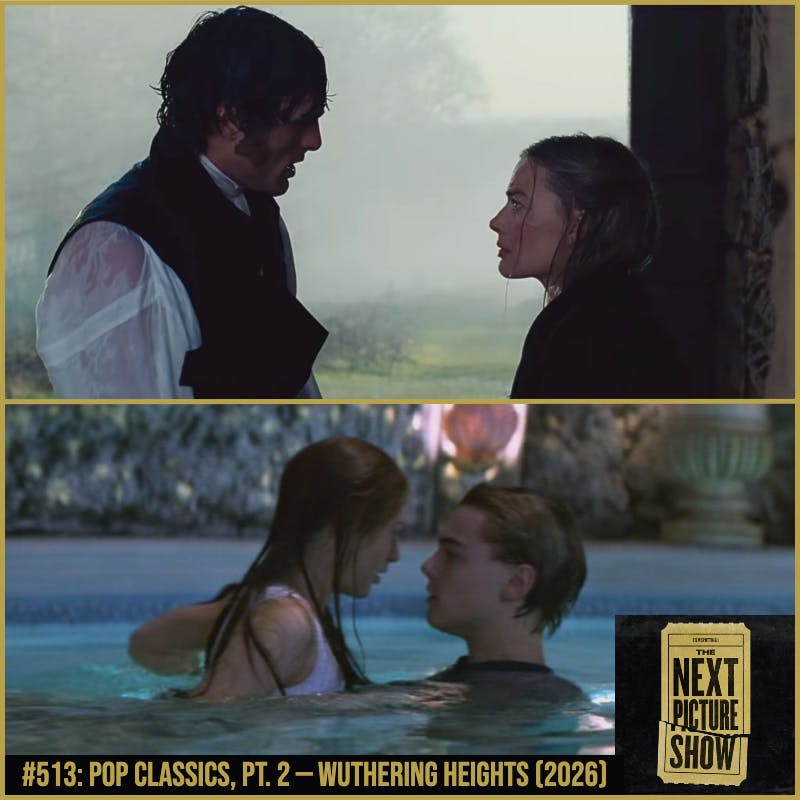

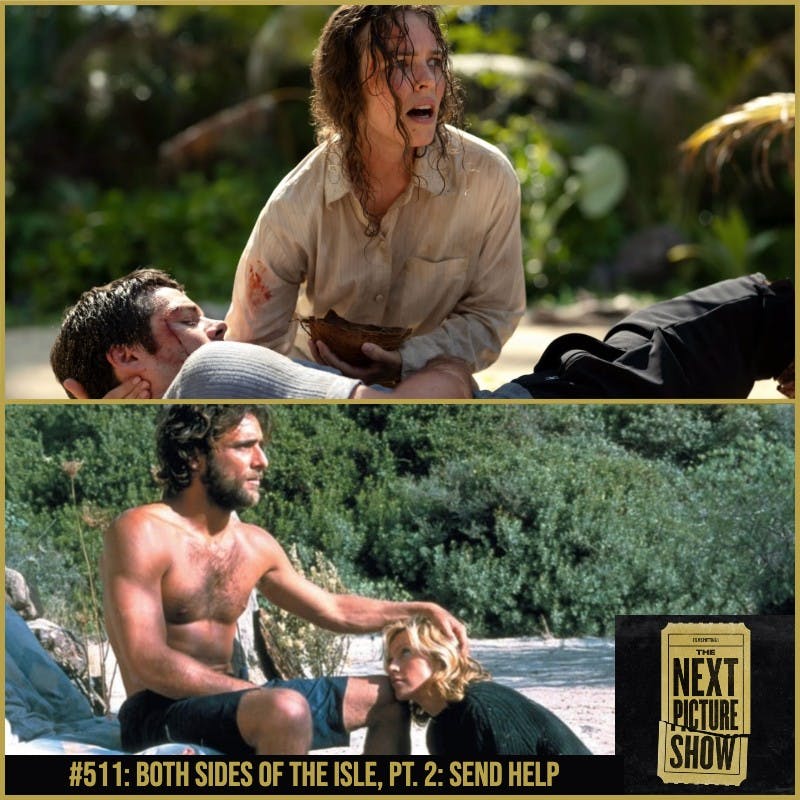


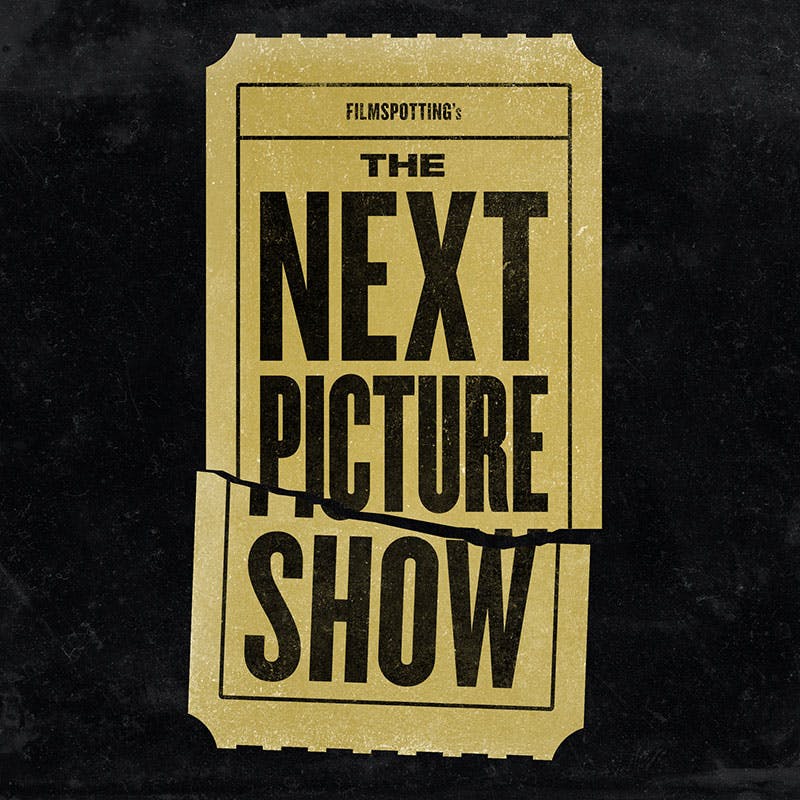
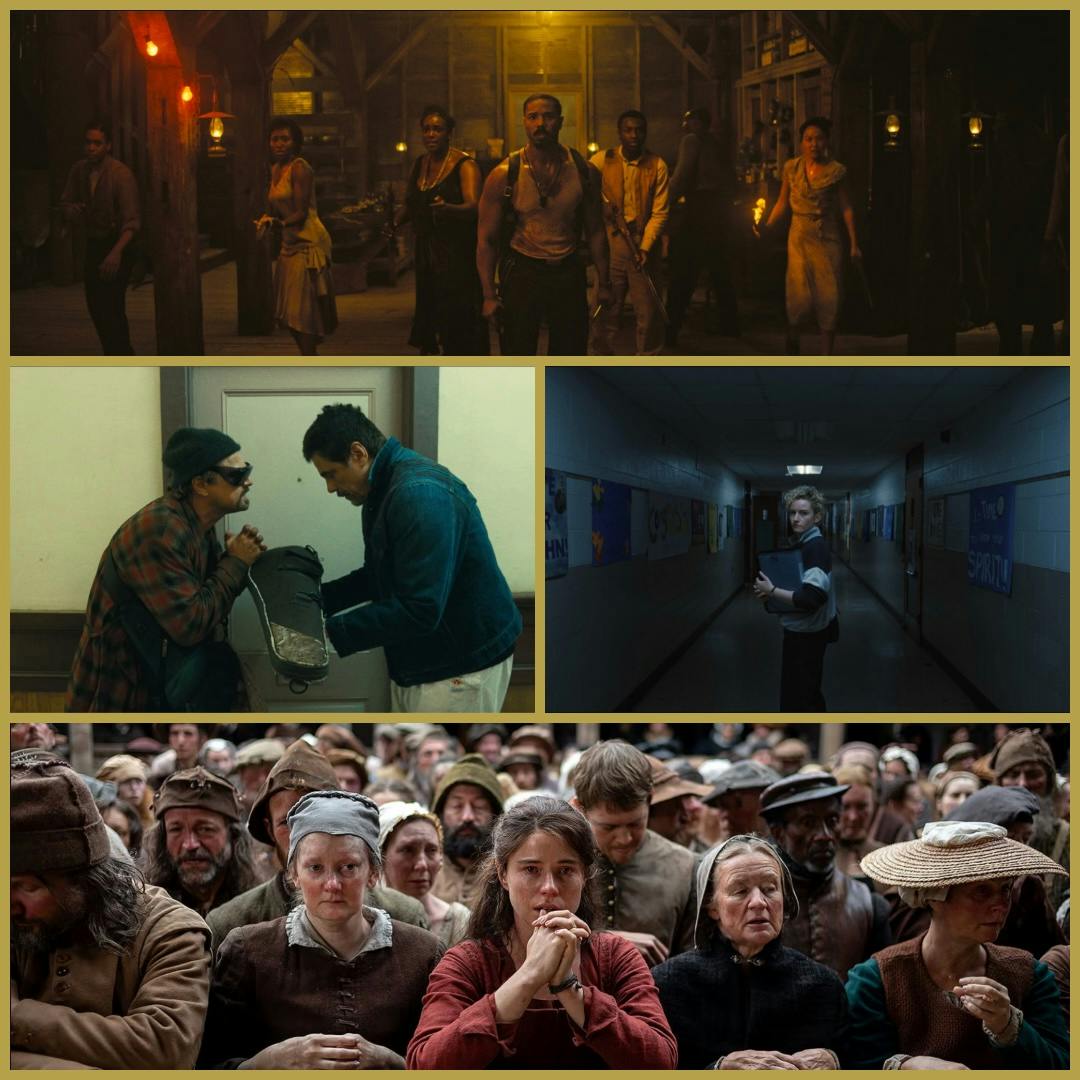





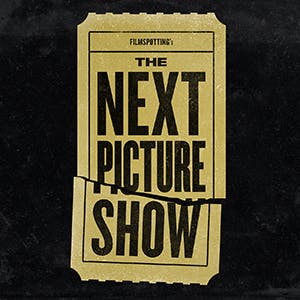








this is the moved I've been by a Miyazaki film
I'm a "black" conservative, who enjoys listening to your podcasts, and let's face it, had you succumbed to bringing someone on to give "the black point of point of view", you would have chosen some "black" feminist writer from 'The Root' or some such publication. You would have had no more insight into what the collective "black" people thought of 'Malcolm X', than four "white" folks alone who enjoy talking about movie.
#148 "Black" people are waaaaay too diverse for four "white" people to get caught up in "the black point of view" . For example, If you had brought on a "black" feminist to give her perspective of 'Malcolm X', I would have been turned off.......big time! "Blacks" and "Whites" are NOT that different.
los grey
dont even know how I ended up with this app. it, and this podcast sucks donkey balls
An aspect to the Coens that one of you very briefly touched on, but seems glaring to me, is their absolutely relentless use of religious symbolism. In A Serious Man, we have a modern version of a Job-esque story. In Hail, Ceasar, we can see a clear Christ figure in Eddie Mannix. Whether he is taking orders from an unseen boss somewhere unknown, fixing the lives of those put under his care, or having to choose the studio, i.e. fasting for forty days and forty nights, instead of choosing to give all that up and work for Lockhead, i.e Satan, to the literal mount of transfiguration in the studio amongst the set for Hail Ceasar, the Coens are using religious symbolism as one of the sharpest tool of their craft. I believe they had religious upbringings that lend a very clever and deep pengant for telling stories that everyone can relate to, in one way or another. Thanks for making a binge-worthy podcast for me to start from the beginning :)
India
I really like this podcast!